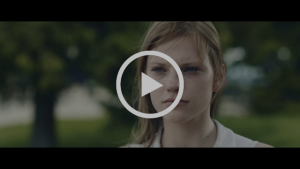Director/Writer: Laila Pakalniņa
Cast: Vilis Daudziņš, Andris Keišs, Wiktor Zborowski
Latvia/Estonia/Poland | Drama/Comedy | 90 min
Folklore meets modernity in DAWN, a gorgeously choreographed glide through an old soviet propaganda tale of life on a collective farm under stalinism. It is the fifth fiction feature by Latvian auteur Laila Pakalniņa, whose work also includes some 20-odd documentaries and shorts. Debuting on the 97th anniversary of Latvia’s independence, with a knowingly cheeky nod to Vladimir Putin among its credited inspirations, this consistently assured and occasionally mesmerising work premiered in the main competition of this year’s Black Nights Film Festival in Tallinn.
Known to run 15-20 km every morning, Pakalniņa announced the date of DAWN’s world-premiere while running the Tallinn Marathon in September, and the film itself sustains high levels of energy through a dynamic formal balance and an oddly infectious persistence. At once intimate and epic, this period tragedy, about a young boy named Janis (Antons Georgs Grauds) who informs on his anti-soviet father (Vilis Daudziņš) to the secret police and who incurs the vengeful wrath of his own family because of it, is also at times an idiosyncratic, joltingly complex comedy. Its rapidfire context demands our active participation to keep apace of events — one ostensibly nonsensical reference to someone “living with the polar bears” is an allusion to the mass deportations to Siberian that thousands of Latvians suffered under Stalin. The ways in which it eludes a full commitment to any particular tonal register — in-jokes, throwaway gags, formal experimentation — means that for foreign audiences at least, the film is an invigorating intellectual exercise more than an emotionally moving drama.
Nothing wrong with that especially: though it lists soviet filmmakers Sergei Eisenstein and Alexander Rzheshevsky (as well as ‘Our Childhood’) alongside Putin as its sources of stimulation, this monochrome film prompts valid comparisons to Alexei German’s recent swansong, HARD TO BE A GOD. Like that work, DAWN demonstrates a masterful command of complicated sequence shots from Pakalniņa and her Polish cinematographer Wojciech Staroń. Much of the action unfolds across multiple planes, as the camera pans lushly through cluttered sets designed in such a way as to create a vivid, believable chaos. The usual farmhouse cacophonies — floorboard creaks, flustered animals, crying babies and off-screen conversational arguments — give the work an impressively immersive quality, a kind of warming maximalism, which is deliberately undercut by intermittent moments of chilly absurdity, when our narrator breaks the fourth wall and speaks directly into Staroń’s camera.
DAWN opens with a close-up, of a tree-hugging snail foregrounded against the animated flap of a hen’s wings. In the background, we see children running through the frame, oblivious to the unperceivable drifts of time — and the political ramifications that cut through it. Throughout her film, Pakalniņa returns to this strategy, of juxtaposing between the abstract and the particular, between the plush pastures of the Latvian countryside and the almost microscopic detail of life within it. A bee lands on a human head of hair. We see a dead fly stuck to someone’s glass of water. A beautiful, birds-eye view of a dead boy in a field continues with the camera mechanically moving to earth, concluding with an extreme close-up of his vacant eyes. Like the giant star one villager is painting on the side of a building, it’s difficult to form a fuller picture of things, here — deliberately so. The central tragedy (“If a son betrays his father, kill him as a dog”) rests upon the twisted loyalties that form when an understandably impressionable boy takes a state’s insidious word as gospel. MICHAEL PATTISON
TALLINN BLACK NIGHTS FILM FESTIVAL | 13 -29 NOVEMBER 2015 | TALLINN ESTONIA

